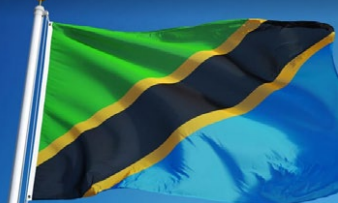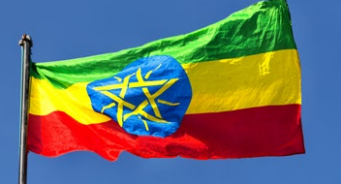TRADE AND FINANCIAL SERVICES ROUND-UP

Kenya
Railway levy cuts save taxpayers Sh3.6 billion

Taxpayers will save about Sh3.6 billion every year following the proposal to reduce Railway Development levies contained in the new Finance Bill.
The Treasury projects that collections from the Railway Development Levy (RDL), which is the kitty that aggregates funds for the operation of the standard gauge railway, will fall by Sh3.6 billion in each of the next two financial years if proposals in the Finance Bill 2023 sail through public participation and Parliament in their current form.
(Business Daily)
Tanzania
Petty traders and food vendors get the lion’s share of the budget.

Economists and traders have hailed the government’s efforts to restore normalcy at the famous Kariakoo business centre in Dar es Salaam, saying the move was crucial for the stability of the country’s economy.
A spot survey conducted by the ‘Daily News’ on Thursday witnessed that almost all shops were open in this busy shopping area. On Monday and Tuesday, the traders closed their shops, calling for the removal of what they termed as nuisance levies imposed by the Tanzania Revenue Authority (TRA). The traders lamented that the move by TRA to impose new legal provisions on the registration of storage facilities was tantamount to double taxation, a situation which was affecting their businesses adversely.
(Daily News)
Uganda
Parliament considering moratorium on ministerial tax waivers, exemptions

Members of Parliament have proposed a moratorium on the powers of Ministers to grant tax waivers and tax exemptions to individuals and companies operating businesses in the country. The legislators are concerned over the persistent requests from the government for additional funds from Parliament to finance unfunded priorities while significant revenue is lost through tax waivers and exemptions granted by Ministers.
During a debate on the supplementary request of Shillings 4.4 trillion from the Ministry of Finance, Planning, and Economic Development for the Financial Year 2021/2022, Jonathan Odur, the Erute South Member of Parliament, pointed out that Ministers are abusing their powers. He cited a loss of Shillings 2.478 trillion, approximately 5% of the national budget, due to tax waivers in the same financial year. Some of the tax waivers include the capital gains tax waiver of Shillings 13.942 billion to businessman Behakanira Gudra, Shillings 33.942 billion to UgaCof Uganda Limited (a coffee processing and exporting company), and Shillings 2.4 billion to Fresh Cuts Uganda Limited (a meat processing firm).
(The Independent)
Rwanda
Rwanda, China trade grows by 31%

Bilateral trade between China and Rwanda has registered steady and rapid growth, increasing by 31.2 per cent to $477 million in 2022, compared to the previous year, according to Wang Xuekun, Ambassador of China to Rwanda. Ambassador Xuekun was speaking on Wednesday, May 17, during the China International Import Expo (CIIE) Promotion Conference held in Kigali.
Proposed by Chinese President Xi Jinping in 2017, the China International Import Expo (CIIE) – one of the major outcomes of the Belt and Road Initiative – is the country’s largest expo. It provides a platform to showcase the national image, promote trade and investment, help companies open new markets, and advance economic globalization.
(The Times)
Ethiopia
Development partners urged to commit strong support to rebuild conflict-affected areas in Ethiopia.

Finance Minister Ahmed Shide has called on development partners to increase strong financial support in addition to the government’s efforts to rebuild conflict-affected areas in Ethiopia. Ahmed presented the nine-month performance report of the Ministry of Finance to the Planning, Budget and Finance Affairs Standing Committee of the House of Peoples’ Representatives today.
On the occasion, he called on the development partners to increase their financial support to rebuilding conflict-affected areas in Ethiopia. The financial support of some development partners was lower compared to the plan, he indicated. The Ministry planned to get 2.9 billion USD in aid and loan from development partners in the past 9 months of Ethiopia Fiscal year and obtained $1.4 billion in aid and $404.4 million in loans, which is 62.2 percent of the plan, it was learned.
(Ena)
Sudan
Sudan conflict alarms world gum Arabic market

Potential disruptions to the supply chain of gum Arabic*, as fallout from the Sudan conflict, is causing alarm among international manufacturers. As about 70 per cent of the world’s supply comes from acacia trees in Sudan, the ongoing impact on the economy has led to stockpiling efforts by companies, and disruptions in trade.
There are reports that international companies that depend on a reliable supply of gum Arabic, such as major soft drink producers, have been stockpiling supplies to mitigate potential shortages. Exporters and suppliers have reported a halt in trade due to the breakdown in logistics, particularly in the capital Khartoum, and to port operations in Red Sea state which have prioritised civilian evacuations over commercial activities.
The impact this year is more significant than previous conflicts, which were typically localised in remote areas like Darfur, so that current stockpiles may only last about five to six months. This could impact the Sudan economy in the longer term as the cosmetics and printing industries seek alternatives, however, there is no such alternative for gum Arabic as an emulsifier in fizzy drinks, where it is used to prevent the ingredients from separating.
The significance of gum Arabic to the consumer goods industry is evident from its exemption from US sanctions against Sudan since 1997. This exemption was granted due to its critical nature and the fear of creating an informal market.
(Dabanga Sudan)

